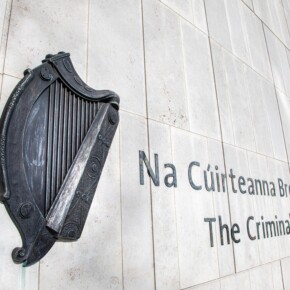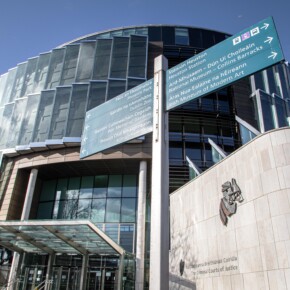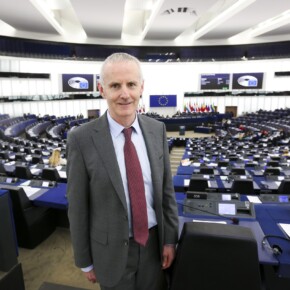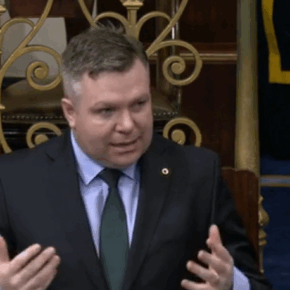Large decrease in air pollution from traffic in 2020 due to Covid-19 restrictions
Padraig Conlon 23 Nov 2021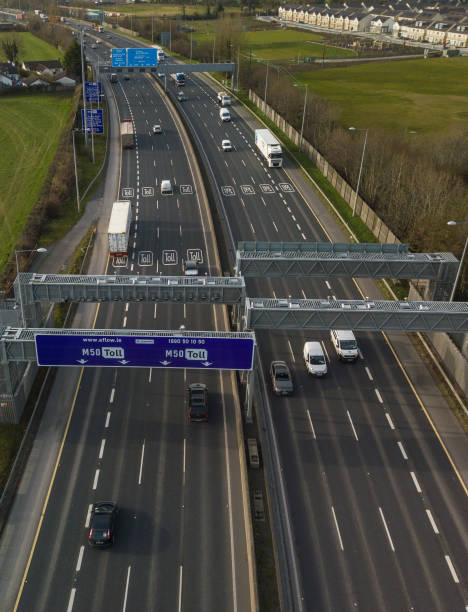
The Environmental Protection Agency (EPA) has today launched its annual air quality report ‘Air Quality in Ireland 2020′.
The report shows that, while air quality in Ireland is generally good and compares favourably with many of our European neighbours, there are worrying localised issues which lead to poor air quality.
EPA monitoring shows that Ireland was compliant with EU legal limits in 2020, largely assisted by the significant reduction in traffic due to Covid-19 restrictions. Air pollution from traffic – nitrogen dioxide (NO2) – fell at all monitoring stations, but most notably at urban-traffic locations where levels fell by up to 50 per cent.
However, air quality levels were above the WHO stricter guideline values at 52 monitoring stations, largely due to the burning of solid fuel for home heating.
Air quality has an impact on people’s health and there are an estimated 1,300 premature deaths in Ireland per year due to levels of fine fine particles (particulate matter) in our air.
Levels of this pollutant are of growing concern and are particularly high during the winter months, when people’s use of solid fuels such as coal, turf and wood impacts negatively on-air quality, especially in villages, towns and smaller cities.
The EPA air quality report notes that any movement towards cleaner home heating choices and less smoky solid fuel choices will result in a subsequent improvement on air quality.
Launching the report, Air Quality in Ireland 2020, Dr Micheál Lehane, Director of the EPA’s Office of Radiation Protection & Environmental Monitoring, said,
“The EPA’s air quality monitoring carried out in 2020 has shown that there were dramatic and immediate decreases in air pollution in our urban areas due to reduced traffic volumes associated with COVID-19 restrictions.
“As we now start to travel more we must not lose sight of the obvious link between our journey choices and levels of traffic derived air pollutants.
“Pollutants from traffic have a negative impact on people’s health and our actions, as individuals, do impact the air we breathe.
Pat Byrne, EPA Programme Manager, said,
“Ireland still has issues with poor air quality due to the burning of solid fuel in our villages, towns and smaller cities.
“Ireland is above WHO air quality guideline values at many locations and it is imperative that we each, as individuals, make cleaner air choices when deciding how to heat our homes, as this can improve our local air quality and have associated health benefits.”
The Government has announced that new regulations on the use of solid fuels will come into force in 2022 – all coal products sold will be required to be low-smoke and all wood sold for immediate use must have a moisture content of 25 per cent or less.
This is a positive step for air quality, which will need to be supported by clear communications to ensure public engagement and the best outcome for air quality and health.
The ‘ABC for Cleaner Air’ campaign, launched by the Department of Environment, Climate and Communications, highlights some simple steps we can all make and help reduce pollution from solid fuels.
The EPA’s home heating infographic also identifies what changes people can make to home heating choices to improve air quality.
The ‘Air Quality in Ireland 2020’ report is available on the EPA website. The EPA continually monitors air quality across Ireland and provides the air quality index for health and real-time results online at www.airquality.epa.ie.
Results are updated hourly on the website, and people can log on at any time to check whether the current air quality is good, fair or poor.


